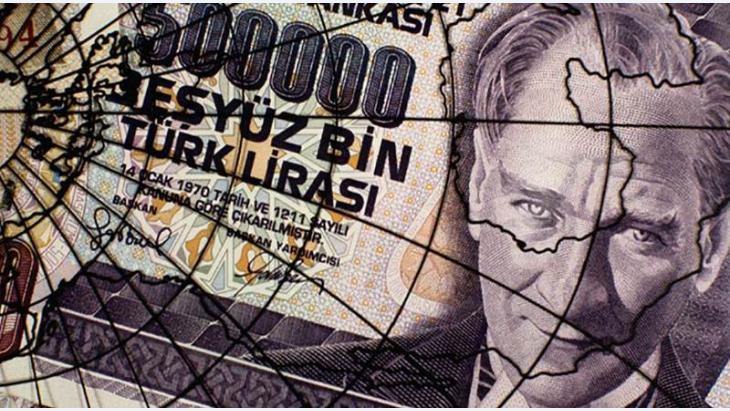One of the great geopolitical issues in nineteenth-century Europe was the so-called Eastern Question. The Ottoman Empire, then known as the “sick man of Europe,” was rapidly disintegrating and it remained to be seen which European power would succeed it. When the self-annihilation of World War I finally arrived, it was no coincidence that it emanated from the Balkans, the geopolitical playground for the Ottoman, Austro-Hungarian and Russian empires.
All three great empires met their demise after the war. During the Allied partition of the Ottoman Empire, General Mustafa Kemal Ataturk and the defeated Turkish army withdrew to Anatolia, where they successfully repelled a Greek intervention and then rejected the Treaty of Sevres. In its place came the Treaty of Lausanne, which paved the way for the establishment of the Republic of Turkey.
Hybrid state based on de facto military rule and formal democracy
Ataturkʹs ambition was to turn Turkey into a modern, secular country that would belong to Europe and the West, not to the Middle East. To achieve this goal, he ruled as an authoritarian and created a hybrid state based on de facto military rule and multi-party democracy. Over the course of the twentieth century, this arrangement produced recurring crises in which Turkish democracy was repeatedly interrupted by temporary military dictatorships.
After 1947, Turkish politics was heavily influenced by the Cold War. In 1952, Turkey joined NATO and became one of the Westʹs indispensable allies. For decades, it used its strategic position between the Eastern Mediterranean and the Black Sea to guard the allianceʹs southern flank against Soviet encroachments.
Still, Turkey remained an unstable political entity. The constant vacillation between democracy and military rule arrested most of its progress toward modernisation. For Turkish proponents of democracy, the countryʹs best hope rested with Europe. Formal accession to the European Union would signal the completion of the modernisation process. Whereas the Ottomans had maintained hegemony over the Middle East for a century, Turkey would become a card-carrying member of the West.

In 1995, Turkey entered into a customs union with the EU. By the time the Islamist Justice and Development Party (AKP) came to power in 2002, the country seemed to have oriented itself toward Europe for good. Successive AKP governments led by then-Prime Minister Recep Tayyip Erdogan pursued far-reaching institutional, economic and judicial reforms, including the abolition of the death penalty, an essential pre-condition for EU membership.
Model of “Islamic democracy”
Moreover, during the early years of Erdoganʹs premiership, Turkey experienced rapid modernisation and strong economic growth, bringing it ever closer to the EU. By 2011, when the Arab Spring arrived, Turkey was rightly heralded as a successful model of “Islamic democracy,” in which free and fair elections were combined with the rule of law and a market economy.
Seven years later, we seem to be in a completely different world. Turkey is quickly reclaiming its title as “the sick man of Europe“. Given its strategic location and economic and human potential, the country should be moving toward a brilliant twenty-first-century future. Instead, it is marching backward towards the nineteenth century, under the banner of nationalism and re-orientalisation. Rather than embrace Western modernity, it is throwing in its lot with the Middle East and that regionʹs perpetual crises.
Erdogan, who assumed the presidency in 2014, has presided over Turkeyʹs rapid modernisation and equally rapid backsliding.

He had the historic chance to follow in Ataturkʹs footsteps and complete the task of integrating Turkey into the West, but he failed. Why? One possibility is that Erdogan grew overconfident during the boom that preceded the 2008 financial crisis. Another is that he came to resent the West, owing to the humiliation of the stalled EU accession process and his own authoritarian ambitions, which he finally pursued in earnest after the failed military coup in the summer of 2016.
An unique opportunity squandered
In any event, Erdogan has squandered a unique opportunity for both Turkey and the Muslim world generally. His country is now beset by a currency crisis of his own making and it could even face the prospect of national bankruptcy. As he increasingly divides his loyalties between East and West, he risks destabilising the Middle East even further.
Turkeyʹs domestic ethnic conflicts – particularly with the Kurds – have once again erupted with full force, even though past experience shows that they cannot be resolved militarily. Thanks to Erdogan, Turkey has become part of the problem in the region, rather than the solution.
And yet Turkeyʹs strategic importance to Europe remains. Millions of EU citizens are of Turkish origin and the country will continue to bridge the gap between East and West, North and South.
Under Erdoganʹs regime, Turkey is no longer a prospective candidate for EU membership. But, rather than break off the accession process, the EU should focus on stabilising the country and salvaging its democracy.
After all, a destabilised Turkey is the last thing Europe needs. Regardless of oneʹs sympathy for or antipathy to Erdogan, Europeʹs own security depends heavily on Turkey, which has absorbed millions of migrants and refugees fleeing conflicts in the Middle East in recent years.
For the sake of both European stability and Turkish democracy, the EU must confront Turkeyʹs crisis with patience and pragmatism, based on its own democratic principles.
By Joschka Fischer
Source: Qantara



